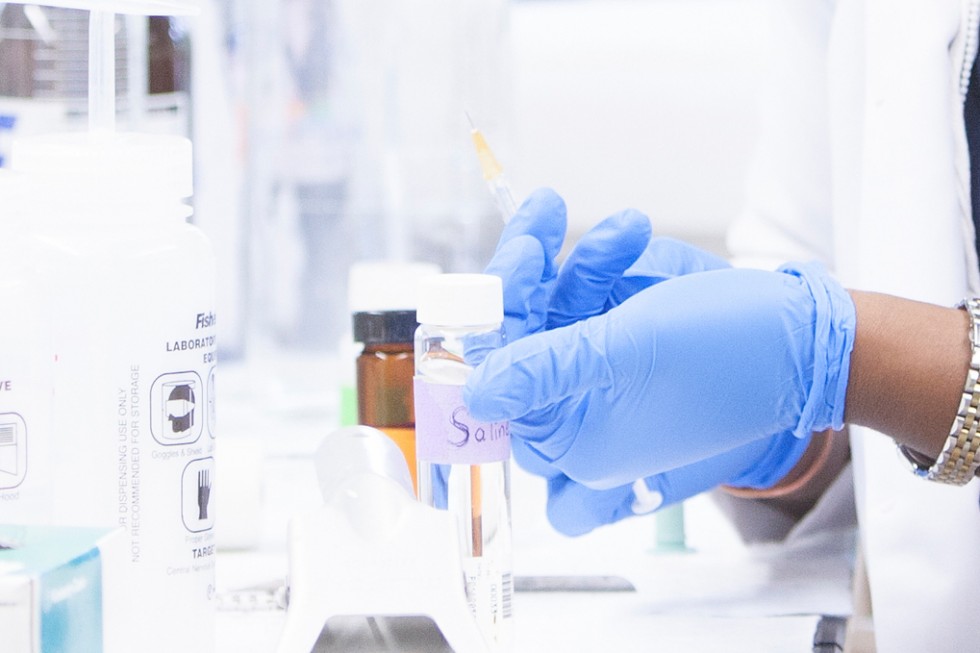Unpacking Title IX
Campus sexual assault is a nationwide problem with no easy solution. Kenyon is not immune.
Read The StoryThe National Science Foundation (NSF) has granted Kenyon $999,195 to study how high-impact practices for students in the fields of science, technology, engineering and mathematics (STEM) can improve student persistence and career success.

The National Science Foundation (NSF) has granted Kenyon $999,195 to study how high-impact practices for students in the fields of science, technology, engineering and mathematics (STEM) can improve student persistence and career success.
This marks an increase in Kenyon’s ongoing efforts to help minority and first-generation students succeed in STEM fields. “Our hypothesis is that impacting students earlier in their college careers will improve their persistence in the STEM fields,” Associate Professor of Biology Karen Hicks said.
High-impact practices include research with faculty, community-based and collaborative projects, off-campus study and internships.
The grant to the Department of Biology builds on a previous NSF grant of $598,000 that expired in May 2016 and included annual scholarships of $5,400 for 24 students.
Twenty of those 24 students graduated from Kenyon with a STEM major, a higher rate than that of other Kenyon students who worked in the STEM fields at some point during their college careers.
The new NSF grant will award $6,000 a year to students grouped in annual cohorts of 12.
“The NSF is really looking for cohort cohesion,” Hicks said. “That’s what the data show: that cohesion increases perseverance, that a sense of belonging to a group matters, that it makes a difference if you have colleagues with whom you share interests.”
One way to build cohesion is to have STEM scholarship students participate in a summer bridge program. For years, the Kenyon Educational Enrichment Program (KEEP) has offered incoming students of color and first-generation college students a summer program that includes a chance to meet science faculty and take a class in data analysis. Now there will be a section of KEEP for the 12 STEM scholarship students that will include three weeks of work on a STEM-focused project and three weeks of participation in the KEEP writing course. That focus on incoming first-year students is based on data showing that the majority of students who leave STEM fields do so during their first two years.
The earlier programming will have the STEM students participate in peer mentoring and take a first-year course that includes a structured service-learning project at the Science Play-Space Initiative, an independent, nonprofit organization that provides a recreational science experience for Knox County children. The Science Play-Space Initiative will relocate from a downtown Mount Vernon storefront to the former Buckeye Candy building now being renovated by the College on South Main Street.
“One thing that will help these students identify as scientists will be to think about how others might learn about science through activities that our STEM students develop,” Hicks said. The prediction is that as students share their knowledge in the field by mentoring children and fellow undergraduate students, their drive to participate in other high-impact experiences such as scientific internships and independent research will increase. Kenyon’s work with STEM students has grown to include biology, chemistry, mathematics, neuroscience and physics. Kenyon intends to build an endowment fund to sustain the STEM programs after this grant ends.
Campus sexual assault is a nationwide problem with no easy solution. Kenyon is not immune.
Read The StoryIn the aftermath of this election season, it's worth taking a new look at Kenyon's very own U.S. president.
Read The StoryBruce Hardy counters the caricatures of Neanderthals by analyzing microscopic residues on stone tools - and making…
Read The Story